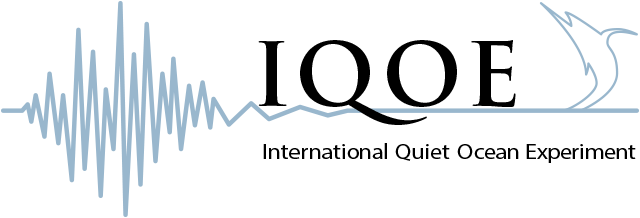This is an archive of the page originally published at oceanleadership.org/understanding/u-s-quiet-ocean-project.
COL undertook a one-year effort to learn about U.S. priorities for ocean-sound related research and explore opportunities to advance such research that could be realized by an ocean sound science program coordinated across federal agencies, academia, non-profits, and the private sector. Such a coordinated U.S. ocean sound research program in the U.S. would also serve as a contribution to the International Quiet Ocean Experiment (IQOE). This effort included a workshop that developed recommendations for common data collection and processing approaches to allow for transparency and comparability between U.S. passive acoustic studies in the ocean environment. This workshop demonstrated the value of cross-sectoral engagement in big science challenges such as understanding sound in the ocean. Funding for this initiative was provided by the Richard Lounsbery Foundation.
About the U.S. Quiet Ocean Project
The ocean is alive with activity, where sounds move faster than they do through air. These include natural noises, like those from oceanic and atmospheric conditions (e.g., breaking waves, rain, and cleaving and shifting ice), marine animals (e.g., sea urchins scraping algae off of rocks, dolphins whistling and echolocating, and snapping shrimp creating bursts of sound while hunting), and marine features (e.g., underwater volcanic eruptions). Humans also generate sound on and under the water through ships, sonar, and other industrial and recreational activities. This anthropogenic sound in the ocean is increasing and will likely continue to do so as use and industrialization of the ocean grow.
Many marine animals rely on their acute hearing to locate food and other animals, so a louder ocean can affect their ability to perform functions necessary to survive. Studies have already shown the impacts of sound on some types of marine life, particularly marine mammals. However, we do not have an adequate understanding of the variability of natural and anthropogenic sources of sound across time and space, the impacts of sound on a full range of marine life and ecosystems, or the cumulative effects of sound in conjunction with other stressors (warming seas, overfishing, etc.).
Stakeholders across government, industry, academia, and non-profits have an interest in understanding and managing ocean sound and its impact. Collaboration across these sectors is needed to leverage resources, mitigate conflict, and build critical understanding to sustain our ocean resources. The Consortium for Ocean Leadership has provided a forum for U.S. ocean sound-related discussions across stakeholders, including a symposium on ocean sound-related science gaps and a workshop on common approaches to passive acoustic data collection and processing.
Selected Reference Documents:
- Ocean Noise Strategy Roadmap (NOAA, 2016)
- Sonic Sea (NRDC & IFAW, 2016)
- International Quiet Ocean Experiment Science Plan (2015)
- Interagency report on a Marine Mammals and Sound Workshop (2010)
- Effects of Stress on Marine Mammals Exposed to Sound (ONR, 2009)
- Marine Mammals and Noise report (MMC, 2007)
- Ocean Noise and Marine Mammals (NRC, 2003)
- Discovery of Sound in the Sea website
US Ocean-sound related programs:
- NOAA/PMEL Acoustics Program
- ONR Ocean Acoustics Program
- USGS SHIPS
- NOAA Cetacean and Sound Mapping Project
- EcoSono
- NOAA PIFSC Passive Acoustic Monitoring
Academic Programs:
- Ocean Acoustics, SIO
- Ocean Acoustics Group, MIT
- Ocean Acoustics, WHOI
- Applied Physics Lab, UW
- Acoustical Ocean Ecology, MBARI
- Ocean Acoustics Program, Oregon State
- Nowacek Acoustics and Engineering Lab, Duke University
- Applied Research Lab, University of Texas at Austin
- Hydrographic Science Research Center, University of Southern Mississippi
- CMS Ocean Technology Group, University of South Florida
- Applied Research Lab, Penn State
- Oceantune, University of Connecticut
- FRG, Stanford
Observing Networks and Assets:
– Cabled Observatory:
– Regional Networks:
- NOAA/NPS Ocean Noise Reference Station Network
- LADC EARS
- Great Lakes Acoustic Telemetry Observation System (GLATOS)
- Integrated Tracking of Aquatic Animals in the Gulf of Mexico (iTAG)
- Champlain Acoustic Telemetry Observation System (CATOS)
- Texas Acoustic Array Network (TAAN)
- Southern California Acoustic Telemetry Tracking Network (SCATTN)
- Cornell / WHOI Right Whale Detection Buoy System
- Gulf of Mexico Ocean Observing System
- Southeast Coastal Ocean Observing Regional Association (SECOORA) and Florida Atlantic Coast Telemetry Network (FACT) Acoustic Node
- Mid-Atlantic Acoustic Telemetry Observation System (MATOS)
